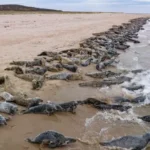Trinidad and Tobago has received renewed authorization from the United States to proceed with gas exploration in Venezuelan waters — a decision that reopens one of the Caribbean’s most strategically significant energy projects.
After months of diplomatic stasis, Washington has issued a fresh license allowing Trinidad to resume discussions with Venezuela over the Dragon gas field, a massive reserve lying just across the shared maritime boundary. The field, estimated to contain over 120 billion cubic meters of natural gas, could reverse Trinidad’s recent production decline and bolster its liquefied natural gas exports.
The authorization restores momentum to a three-way arrangement forged last year between Trinidad and Tobago, Venezuela, and Shell. The oil major remains central to the project’s development, serving as the operational bridge between the two nations. The previous U.S. license was unexpectedly revoked six months ago amid Washington’s tightening sanctions on the Maduro administration — a move that froze progress and cast uncertainty over Trinidad’s supply strategy.
Attorney General John Jeremie confirmed the updated permit this week, emphasizing that it provides the legal clearance needed to negotiate without breaching sanctions first imposed in 2019. “This license allows us to move forward responsibly, within international law,” Jeremie said, underscoring the delicate balance between regional cooperation and geopolitical constraint.
The development arrives at a time when the United States has intensified its military posture in the southern Caribbean, deploying naval assets near Venezuelan waters — a maneuver that has stirred speculation of escalating pressure on Caracas. Yet, paradoxically, Washington’s measured approval for the Dragon project hints at an evolving energy calculus: pragmatic engagement despite political discord.
For Trinidad, once the Caribbean’s natural gas powerhouse, the reopening of the Dragon initiative marks a critical inflection point. Domestic reserves have waned, industrial output has slowed, and the country’s energy-based economy has felt the strain. Accessing Venezuelan gas may not only replenish feedstock for LNG plants and petrochemical facilities but also reaffirm Trinidad’s role as the region’s energy hub.
The Dragon field, dormant for years under sanctions, now re-emerges as a potential cornerstone of Caribbean energy stability — where economic survival, political caution, and global supply demands converge in one fragile but promising equation.






